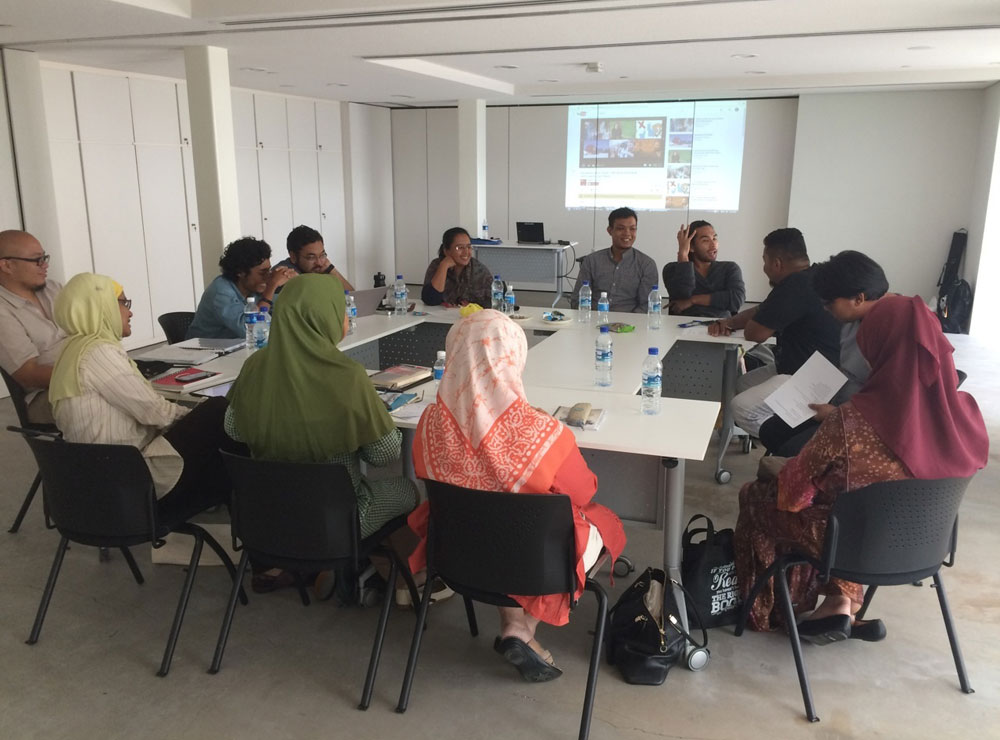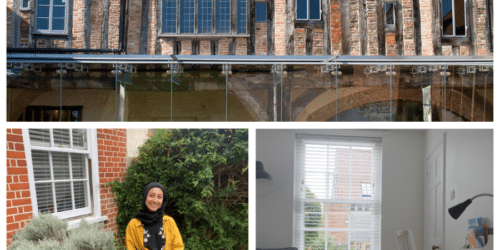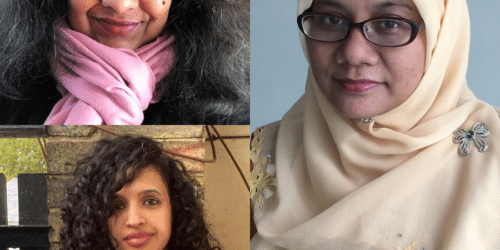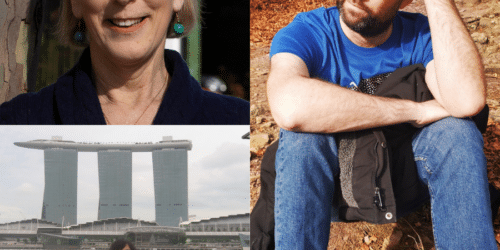
WCN Associate Programme Director Kate Griffin flew out to Singapore at the end of September to host an intensive four day workshop, turning extracts from two of Shakespeare’s most famous plays into Chinese and Malay. Below, she shares her observations on a fascinating – and often intricate – process.
Singapore was the location for the second leg of the Great Feast of Languages, held in partnership with the British Council, Shakespeare’s Globe, the British Centre for Literary Translation and the Select Centre, and hosted by the National Gallery of Singapore. Up in the rooftop studios we had two workshop groups, one translating into Mandarin Chinese, the other into Malay. Our Chinese-English workshop leaders were Shelly Bryant and Lee Cheekeng; the Malay strand was led by Rasiah Halil and Zulfadli Rashid. Patrick Spottiswoode of Shakespeare’s Globe joined us via Skype. You can read their biogs here.
The participants, from Singapore, mainland China and Malaysia, were a lively mix of translators and theatre practitioners. We spent the first two days translating Hamlet’s soliloquy, and the last two days focusing on Romeo and Juliet’s shared sonnet. Despite their familiarity, these texts threw up interesting challenges for translation, which you can read about here in the Word of the Day blogs:
Word of the Day: Translating Shakespeare into Malay
Word of the Day: Translating Shakespeare into Chinese
On the first day, both groups took a very long time to decide how to translate the first line, ‘To be or not to be.’ It wasn’t simply a question of language: we acknowledged that there are different interpretations of the speech that follows, and that this is set in the way we translate the first line. The Chinese group came up with a sentence in formal Mandarin that roughly translates as ‘the question is, do I live or not live’, incorporating both action and existentialism, while the Malay group also found a solution that left the question open.
We noted the difference and potential clash in Christian, Islamic and Buddhist concepts
We noted the difference and potential clash in Christian, Islamic and Buddhist concepts concerning life and death, the afterlife, and fate, which gave rise to much discussion about translation choices. Translating thoughts of suicide into Malay was problematic as it’s prohibited for Malay Muslims, but we reminded ourselves that Hamlet is not a Malay Prince, he’s a Prince of Denmark who happens to speak Malay. Longevity was also a complicated concept, particularly for the Chinese group: long life is valued by Chinese traditional culture in Singapore, but less so in China post 1949, when people were more open to shorter lives and suicide as a result of the Cultural Revolution.
The challenge of translating religious imagery was common to both groups, as they reflect in their blogs. The Malay group chose to use cultural rather than Islamic equivalents, to avoid insensitivities. They also thought long and hard about the challenges of staging the plays in the Malay context. Together we contemplated the future possibility of translating and staging an Islamic Hamlet and a Buddhist Hamlet, reflecting the diversity of contemporary Singapore.
We had various discussions about accessibility of language, reflecting Shakespeare’s playfulness, from using archaic words to coining new terms. The Malay group used unfamiliar vocabulary taken from classical Malay and traditional Indonesian texts, aiming to offer an experience parallel to that of Shakespeare’s audiences.
Writing Chinese that is beautiful to the ear rather than to the eye is tough
Other linguistic challenges included puns and double meanings, imagery and sounds. Writing Chinese that is beautiful to the ear rather than to the eye is tough, according to Shelly Bryant. She explained that Chinese is a visual language, which you can read without hearing it in your head. Less is more, reflecting the importance of white space in Chinese art. The Chinese group focused on structure, reordering sentences so that they fit Chinese natural rhythms of thought, following the flow of meaning rather than sounds. The Malay language is more for the ear, so the Malay group used Malay rhythms in speech, and found that formal Malay worked well for blank verse.
At the end of each day, we were joined by talented Chinese and Malay actors, to perform the translations and work with us on a final edit. As they voiced the various drafts, we could hear whether or not the translation choices and rhythm worked. Some of the longer Malay words – up to six syllables – couldn’t fit the iambic pentameter, and made for long sentences that were hard for the actors to perform without gasping for breath.
longer Malay words – up to six syllables – couldn’t fit the iambic pentameter
The Great Feast of Languages workshops are part of a global relay, so we read the Word of the Day blogs by the German, Polish and Romanian translators, available on the Great Feast of Languages website and watched their performances on film. Our final translations were very movingly performed by our actors at an event at the National Gallery, the closing session of the TranslateSingapore festival.
Other TranslateSingapore events included the launch of a collection of contemporary plays from South East Asia, published by Aurora Metro, and including work from Singapore, Vietnam, Malaysia, Thailand, the Philippines, Indonesia and Cambodia, extracts from which were performed by young actors from LaSalle College of the Arts.
We celebrated International Translation Day with the launch of the latest issue of Words Without Borders, entitled ‘In Those Days and These’. This edition has a focus on writing from multilingual Singapore, and includes Chinese, Tamil and Malay translations from our previous Translators’ Lab run in partnership with the Select Centre.











